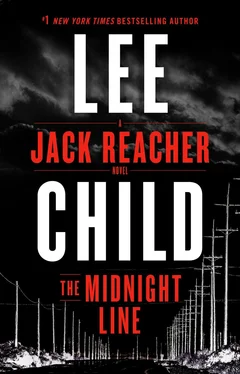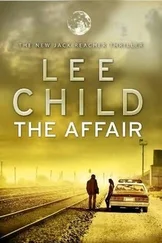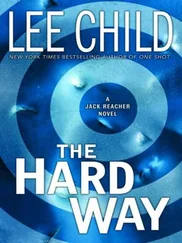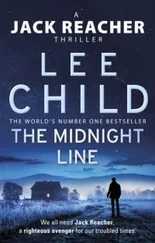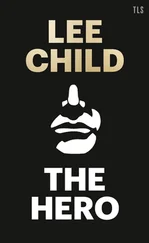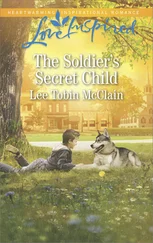“Not yet.”
“Can I ask an unconnected question of my own? Just purely out of interest?”
She said, “I suppose.”
“It’s kind of weird, and I don’t want you to take it the wrong way.”
“I’ll try.”
“How does it feel to be so good looking?”
“Yes, that’s weird.”
“I’m sorry.”
“How did it feel when those guys wouldn’t fight you?”
“Useful.”
“For us it felt like a minimum requirement. Our father had grandiose ideas.”
“The judge.”
“He thought he was living in a storybook. Everything had to be picturesque. On sunny days we ran around the woods in white cotton dresses. At first it was mostly about the hair. All sticking out. We looked like nymphs or fairies. We got the faces later. Then he started dreaming about who we would marry. We thought it was all pretty stupid. It was almost the twenty-first century, and we lived in Wyoming. We ignored it, mostly. But if I’m truly honest, deep down it made an impression. I was aware of it. It came to be part of who I am. Deep down I guess I believe being pretty is better than being ugly. Deep down I know I would choose to look like this again. I worry all that deep down stuff makes me shallow. To answer your question, that’s how it feels.”
“Did Rose feel the same way?”
Mackenzie nodded.
She said, “Rose liked things to be perfect. She was smart, and she worked hard, and mostly she made it happen that way. How she looked was the one thing she couldn’t control. But happily she turned out OK in that department. I think deep down she took a lot of satisfaction from it. She wanted to be the absolute best, from any angle. She wanted to be the total package. And she was.”
“Why did she join the army?”
“I told you.”
“You told me she would shoot a guy even before he set a foot on her porch, whereas you would wait a moment longer. She could have stayed home and done that.”
“I feel like I’m on a psychiatrist’s couch.”
“Lie back and pretend you’re an actress in a movie. Suppose the hotel had a bar. By now you’d have bought me a cup of coffee. Black, no sugar. Or a beer, if they didn’t have coffee. Domestic, in a bottle. You would have gotten some weird kind of white wine. Because of Lake Forest, Illinois. Right now we’d be at a table, talking. I would be asking why Rose joined the army, and you would be telling me.”
“She was looking for something worth it. It turned out the storybook was a lie. He wasn’t the wise man of the county. At first we told ourselves certain practices were almost traditional. He was a lawyer, after all, and lawyers always get paid something. For an opinion, perhaps, prior to the filing. But there were whispers. If they were true, it was something worse. We never found out. Rose and I went to college. They sold the place and moved out of state. We were happy about it. It was a weird place for us. We always knew we were acting in someone else’s play. And then the playwright himself turned out to be made up, too. We reacted in slightly different ways. It left Rose needing something real, and me needing a real storybook. And we got both of them, I guess.”
Reacher said nothing.
“I’m going to bed now,” she said. “Thanks for talking.”
She left him there, alone in the dark, leaning back on the concrete bench, looking at the stars.
—
At that moment, three hundred miles away at an I-90 truck stop not far from Rapid City, South Dakota, a guy in a beat-up old pick-up truck with Wyoming plates and a vinyl camper shell on the back turned into a service road he had been told led to a covered garage. His name was Stackley, and he was thirty-eight years old, a hard worker, maybe not where he should be in life, but always willing to try his best. He had been told the covered garage was half full with idle snowplows and other winter equipment. He had been told the other half was empty. Plenty of space. He had been told they had it all to themselves.
He had been told there would be a guard at the door.
There was.
He slowed to a stop and wound down his window.
He said, “I’m Stackley. You should have gotten a call from Mr. Scorpio. I’m taking over from Billy.”
The guard said, “You’re the new Billy?”
“As of tonight.”
“Congratulations, Stackley. Drive in and park in slot number five. Forward, on a diagonal. Get out of the truck and open the tailgate.”
Stackley did what he was told. He drove in, to an echoing corrugated space the size of an aircraft hangar. On the left were ranks of giant yellow machines, mothballed for the summer. On the right was empty space. Someone had chalked diagonal parking bays on the concrete floor. They were numbered one through ten. One was at the far end, and ten was closest. Seven and three were already occupied. Seven had an old Dodge Durango with its rear door up. Three had a rusted Silverado with a roll-up cover on the bed. Stackley stopped his own truck short of it, and nosed into slot number five. He got out and lowered his tailgate.
Then he checked his watch and waited for midnight. No way to get there faster. The drivers in three and seven were waiting just like him. They nodded, not exactly friendly, not exactly wary. More like a simple same-boat acknowledgment of life’s ups and downs. They were guys not unlike himself. Then an old black four-wheel-drive rolled in, and parked in the number six slot. The driver got out, and nodded all around, and opened his rear hatch door. Then he stood next to it, and waited. He looked just like the others. Late thirties, maybe not where he should be in life.
Five minutes later all ten slots were full. Ten vehicles, all in a line, ten tailgates raised or lowered, ten drivers waiting. The guard watched from the doorway. Stackley checked the time again. It was close to the top of the hour. He saw the guard take a call on his cell, saw him listen, saw him click off, and heard him call out, “Two minutes, guys. It’s nearly here.”
Two minutes later a white panel van drove in a door at the far end of the shed. It looked fresh off the highway. Stackley was reminded of a horse, hot and blowing after a long fast gallop. It nosed in and stopped almost at once, with its rear door level with the truck in slot number one. The driver got out and walked around and opened up. He pulled crisp white boxes from the back of his van, and the driver from slot number one took them from him, and twisted away to slide them in the bed of his pick-up.
The driver got back in the panel van and rolled it forward six or eight feet and stopped again. He repeated the unloading procedure with the driver from slot number two, stacking a teetering pile of crisp white boxes in the guy’s arms, who then rotated away and dumped them in his own truck. Then the van moved on to the guy in slot number three, which gave the guy from slot number one the space to back out, and get straight, and drive out the same door the van had come in through.
A slick operation, Stackley thought. And very well supplied. From where he was standing he could see what the guy was getting in slot number four. High-dose time-release oxycodone, and transdermal fentanyl patches, the latter in three different strengths. The boxes were made of high-gloss card, antiseptic white, pharmaceutical grade. They had brand names. They were the real thing. Made in America, straight from the factory.
Solid gold.
The panel van moved on, and Stackley stepped up. He got what Scorpio had told him he would get, which was the same volume Billy had been moving. Which was a decent quantity, for a rural area with not many people. He put his boxes in the camper shell. He put a blanket over them. Not that anyone could see in his windows. They were vinyl, all cracked and yellow. Better than a tint from a body shop.
Читать дальше
